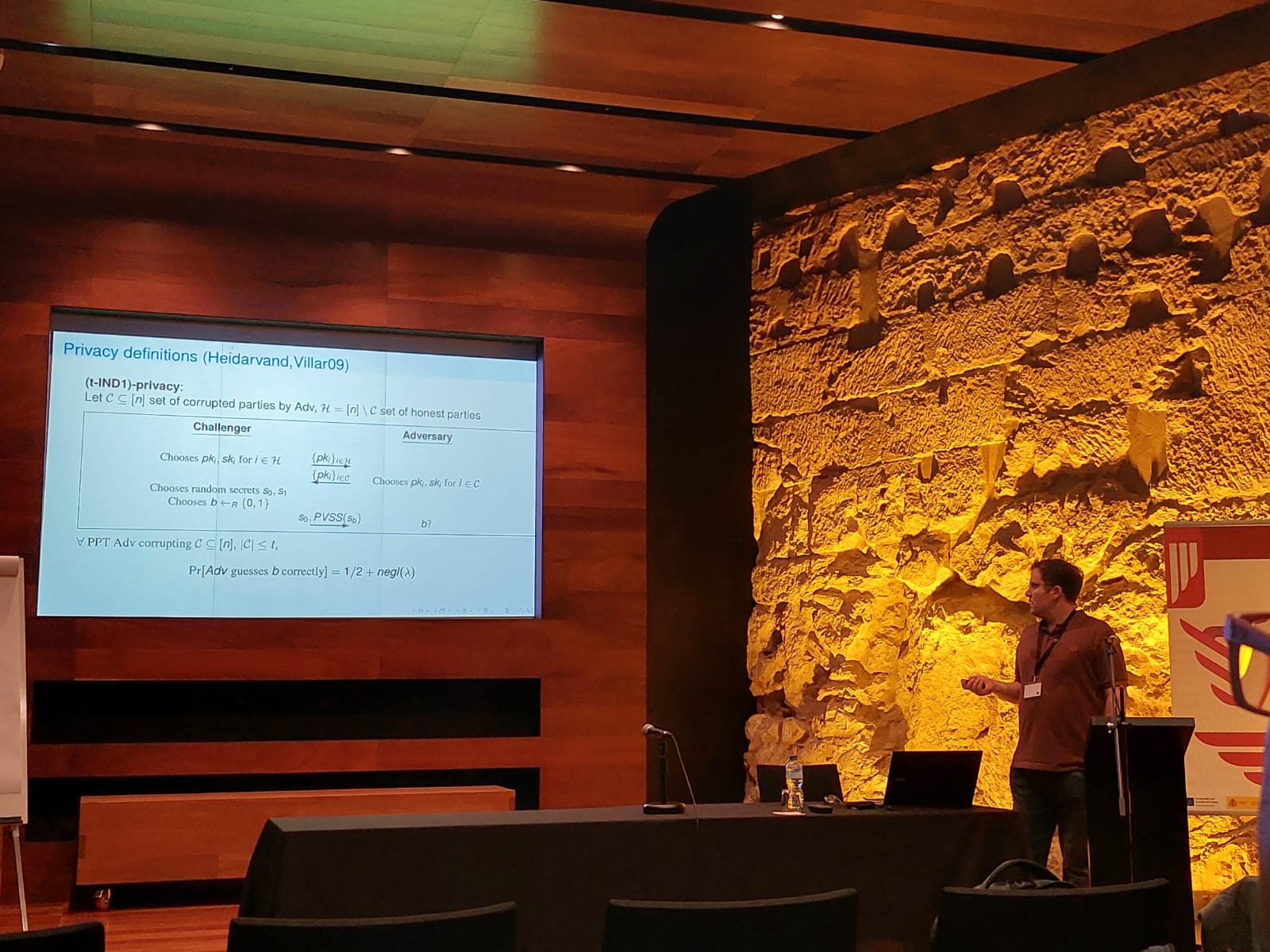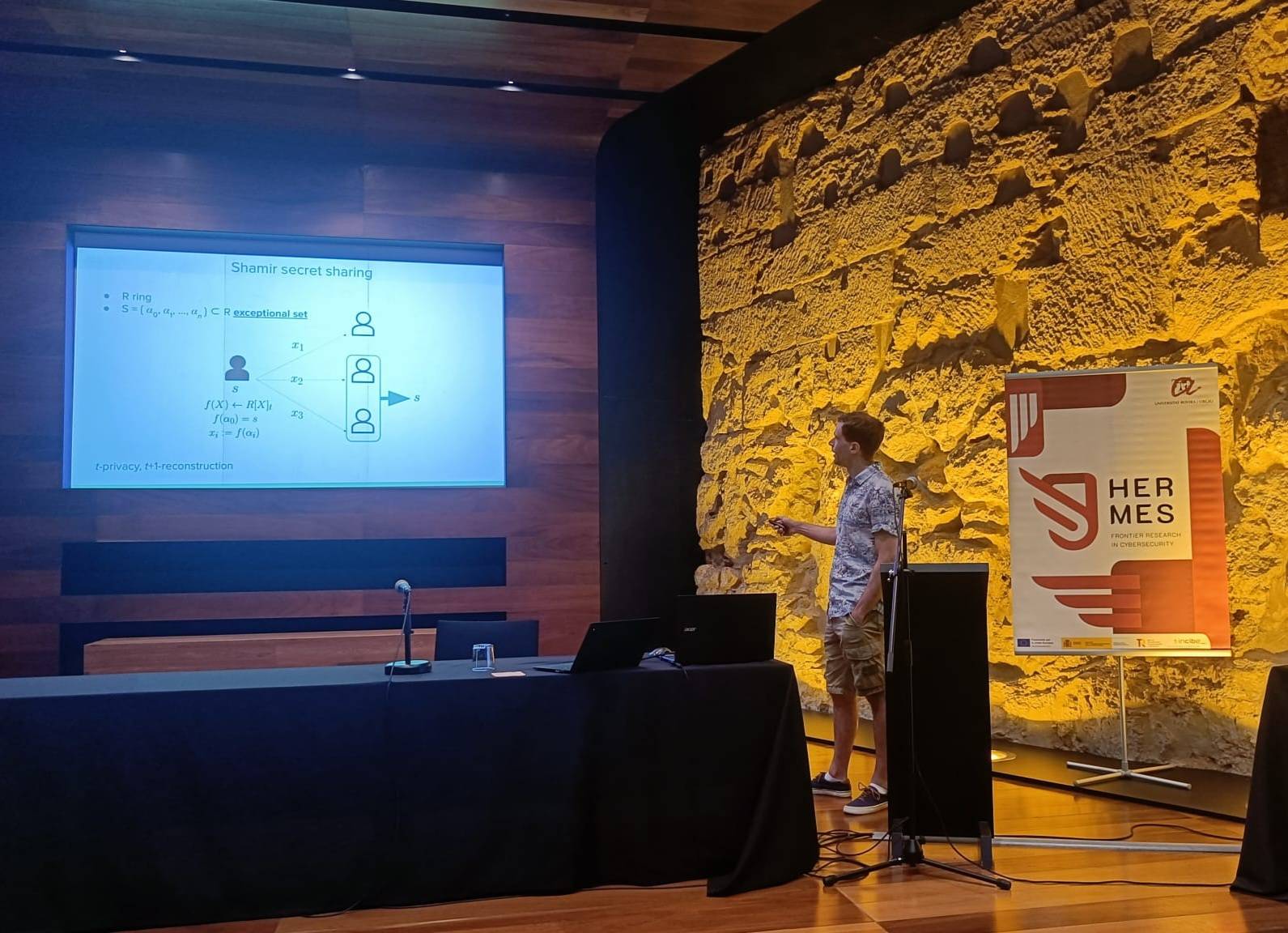Del 12 al 14 de mayo se celebró en la ciudad de Tarragona el Workshop on Secret Sharing Schemes, un encuentro centrado en los fundamentos y aplicaciones de los esquemas de compartición de secretos.
El equipo de IMDEA Software, formado por Ignacio Cascudo, Daniele Cozzo y Xiang Liu, participó activamente en este evento, que reunió a expertos internacionales del área para intercambiar ideas y presentar avances recientes en el campo.

Ignacio Cascudo, investigador senior del instituto, fue invitado a impartir la ponencia titulada “Publicly Verifiable Secret Sharing Schemes”. En ella presentó los principales resultados de una de sus líneas de investigación de los últimos años, recogidos en las publicaciones de las conferencias ACNS, Asiacrypt y Eurocrypt. Esta línea de trabajo ha contado con el apoyo de los proyectos Confidential6G[1] y Prodigy[2].

Por su parte, Daniele Cozzo, investigador postdoctoral en IMDEA Software, ofreció la charla “Verifiable Secret Sharing from Symmetric Key Cryptography with Improved Optimistic Complexity”. La ponencia se basó en los resultados del artículo homónimo, desarrollado en colaboración con Ignacio Cascudo y Emanuele Giunta, y publicado en Asiacrypt 2024.
[1]This work was supported by the Smart Networks and Services Joint Undertaking (SNS JU) under the European Union’s Horizon Europe research and innovation programme in the scope of the CONFIDENTIAL6G project under Grant Agreement 101096435. The contents of this publication are the sole responsibility of the authors and do not in any way reflect the views of the EU
This work is part of PICOCRYPT project that has received funding from the European Research Council (ERC) under the European Union’s Horizon 2020 research and innovation programme (Grant agreement No. 101001283)
[2]This work has been partially supported by PRODIGY Project (TED2021-132464B-I00) funded by MCIN/AEI/10.13039/501100011033/ and the European Union NextGenerationEU/ PRTR
This work is result of the grant JDC2022-049711-I, funded by MCIN/AEI/10.13039/501100011033 and the European Union «NextGenerationEU/PRTR»
This publication is part of the grant PID2022-142290OB-I00, funded by MCIN/AEI/10.13039/501100011033/ FEDER, UE


